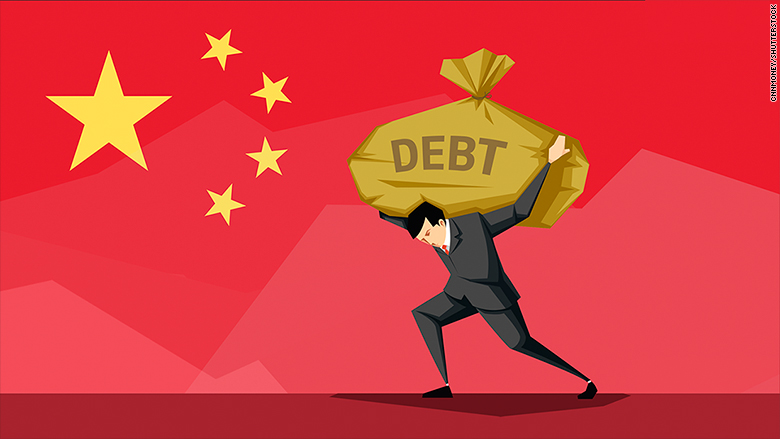Brian Wong, Assistant Professor in Philosophy and Fellow at Centre on Contemporary China and the World, HKU and Rhodes Scholar
Dec 31, 2024
China's leadership has acknowledged the need to prioritize consumption and foster entrepreneurship, but these goals require deeper systemic reforms and a bolder embrace of risk-taking to reignite growth and confidence in the economy.

Sara Hsu, Visiting Scholar at Fudan University
Nov 21, 2019
China’s efforts to stimulate the economy post-crisis have resulted in massive debt accumulation for local governments. Now, the central government must plan to take the steps necessary to clean up its financial mess.

Zach Montague, News Assistant, New York Times
Jan 29, 2018
The fact that multiple cities and provinces in China are confessing to runaway data manipulation might strike some onlookers as bizarre. Major discrepancies between reported and actual growth in recent years would seemingly call into question even the most basic assumptions about the health of the Chinese economy and the trajectory of its growth.

Zhang Monan, Deputy Director of Institute of American and European Studies, CCIEE
Jan 30, 2018
A solution to local government debt is strengthening the central bank’s supervision over it.
Yifan Hu, Chief Economist, Research of Haitong International
Apr 14, 2015
The rapidly swelling local government debt in China over the past few years are seen by many as a trigger to a credit bubble, or even a full-blown financial crisis. Budget reform, the first critical reform among over 330 reform proposals of the Xi administration, has kicked off, laying the foundation for a more balanced and transparent government budget and financing structure. Yifan Hu outlines the areas needed for both short and long term structural changes.

Niu Li, Director of Macro-economy Studies, State Information Center
Mar 18, 2015
Despite China’s remarkable growth, the property market still faces the challenges of consolidation, industrial overcapacity, financial risk, deflationary risk, and structural employment issues. In response the government will adjust to the economy’s “new normal” of slower growth, move toward an innovation based economy with more public goods and services, and pursue a proactive fiscal economy and a prudent monetary policy.
Derek Scissors, Resident Scholar, American Enterprise Institute
Oct 28, 2014
Derek Scissors critiques the methods to measure the wealth of a nation, in particular the GDP PPP metric which led to World Bank and IMF projections of China’s economy surpassing the American economy next year.
Zhang Monan, Deputy Director of Institute of American and European Studies, CCIEE
Jan 14, 2014
The risk of China’s debt crisis is building up and China needs structural solutions in order to effectively solve the issue, writes Zhang Monan.
Zhang Monan, Deputy Director of Institute of American and European Studies, CCIEE
Jul 24, 2013
Laying out the argument for economic reforms, Zhang Monan explains how debt accumulation is on the rise in China. While the real economy tumbles, shadow banking and off-balance-sheet financing is on the rise, making it vital that Chinese leadership lessen the burden on the real economy.
Zhang Monan, Deputy Director of Institute of American and European Studies, CCIEE
Jul 13, 2013
In the coming years, China’s government will have to confront significant challenges to achieve stable, inclusive, and sustainable economic growth. But, with mounting fiscal and financial risks threatening to derail its efforts, policymakers must act quickly to design and implement prudent, forward-looking policies.